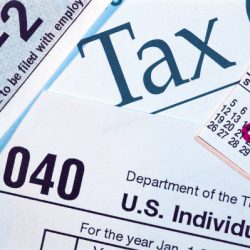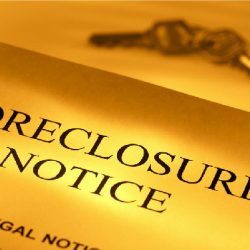Over the past five years, many of my bankruptcy clients have surrendered underwater primary residences to their lenders instead of modifying their mortgages. In a majority of the cases, the numbers simply did not make any sense financially - even if they tried to keep the property, they would never be able to build any equity within a reasonable time frame.
The single most asked question in these cases has been "Will I ever be able to buy another home?" The answer is YES!
After the issuance of a discharge in Chapter 7 bankruptcy, an FHA applicant must wait out the FHA's minimum "seasoning" period. At the time of this writing, that period is ...
Read More...
Credit After Bankruptcy – Now Easier That Ever
It’s looking like 2005 all over again for credit cards....
The New York Times reported this week that credit card solicitations, particularly for those individuals who have tarnished credit or have previously filed bankruptcy, rose substantially during the fourth quarter of 2011. Credit card lenders gave out 1.1 million new cards to borrowers with damaged credit in December, up 12.3 percent from the same month a year earlier, according to Equifax’s credit trends report released in March. These borrowers accounted for 23 percent of new auto loans in the fourth quarter of 2011, up from 17 percent in the same period of 2009, Experian, a credit ...
Read More...
Eliminating Taxes: What Taxes are Dischargeable in Bankruptcy?
It is commonly misunderstood that bankruptcy cannot eliminate any tax liability. Although treatment of tax liability is one of the most complex aspects of consumer bankruptcy law, the Bankruptcy Code does offer many debtors substantial income tax relief. Whether or not your bankruptcy filing relieves your tax debt depends on several factors including the nature and the status of tax liability and the type of bankruptcy proceeding. Remember, only individuals can discharge certain tax debts, not businesses.
An individual can discharge debts for taxes in Chapter 7 bankruptcy only if all of the following conditions are true:
They are only ...
Read More...
Increase in New York Exemptions Will Better Facilitate Chapter 7 Bankruptcy Process for Non-Homeowners
In an earlier post, I discussed the benefits that the increase in the homestead exemption will have for homeowners - but what about those who do not own a home? Do not fret - there are also benefits for non-homeowners as well.
In any discussion of exemptions for those who file bankruptcy in New York, there has always been a major tradeoff in what you are allowed to protect when you file bankruptcy - namely, if you are required to claim the homestead exemption, you could not claim any exemption for cash or cash equivalent assets such as checking or savings accounts or the right to receive a tax refund.
Effective January 22, 2011, the ...
Read More...
Increase in Homestead Exemption a Major Boon to Boomers/Retirees
On January 22, 2011, the amount of equity that an individual homeowner in New York State can protect from creditors in bankruptcy shall increase from $50,000.00 to $150,000.00.
This increase could prove to be a major benefit to boomers and retirees in our area who may:
...own their home (including coops and condos) free and clear or have a substantial equity position in their home;
...are either on a fixed income or are at an income level that would qualify them for a Chapter 7 Bankruptcy under the Means Test;
...have considered bankruptcy because of the burdens of credit card and/or other debt obligations, BUT
...have been previously ...
Read More...
Patterson Signs Bill Increasing Exemptions in Bankruptcy
Governor David A. Paterson announced on December 23, 2010 that he signed into law S.7034-A/A.8735-A, which will increase the amount of exemptions in bankruptcy proceedings and money judgments and provide a choice between State and Federal exemptions.
"During this time of economic crisis, it is our responsibility as public servants to protect those who are struggling the most," Governor Paterson said. "A reconsideration of the current exemptions, which in some cases have not been changed in decades, is particularly warranted when an increasing number of individuals find themselves in dire financial condition. Though this is not a perfect ...
Read More...
How is Credit Reported During a Bankruptcy?
The Fair Credit Reporting Act (FCRA) mandates that the credit bureaus correct errors within 30 days of notification. However, creditors are not required to make any reports on your credit while you are going through the bankruptcy process, which could be anywhere from a few months for a Chapter 7 to 5 years on a Chapter 13 case. When making payments under Chapter 13, many creditors will not report this activity for fear of violating the automatic stay that is put in place when a debtor petitions for bankruptcy. This stay prevents a creditor from taking any further action to collect debts – and some take this a step further to include ...
Read More...
How Can I Qualify for the HAMP Loan Modification Program?
Many homeowners pay their mortgages on time but are not able to refinance to take advantage of today’s lower mortgage rates perhaps due to a decrease in the value of their home. President Obama introduced the Home Affordable Modification Program (HAMP) in February 2009 to stabilize the housing market and help struggling homeowners get relief and avoid foreclosure. HAMP provides eligible homeowners the ability to modify their mortgages to make them more affordable.
The government just recently announced that mortgage lenders would now have an expanded flexibility to assist more unemployed homeowners and homeowners who are underwater on their ...
Read More...
What Should I Do to Re-establish Credit After Filing Bankruptcy?
First, request a copy of your credit report from all three credit bureaus and review each carefully to make sure you are truly getting a fresh start. Any creditor included in your bankruptcy petition should have a zero balance or state, “discharged in bankruptcy” next to the balance. There are often many errors on credit reports following a bankruptcy. If you find errors, dispute them with the credit bureau and they will be corrected. Once you have a clean slate, it’s time to start re-establishing your credit.
Credit Cards: Don’t be surprised when you get credit card offers, sometimes weeks after you get your bankruptcy discharge papers in ...
Read More...
Mortgage Modification and Chapter 13 Bankruptcy – Do Them In Sequence – Not Simultaneously
Despite the recent revelations regarding the mortgage foreclosure process, I am finding that more and more local homeowners are beginning to make headway in the mortgage modification process. Unfortunately, in many cases, this proves to solve only half the problem.
Many homeowners I encounter in my practice are not only facing difficulties with their first mortgage, but may also be dealing with a second mortgage obligation as well as credit card obligations. While in many instances, the second mortgage and credit card debt can be dealt with in a Chapter 13 bankruptcy, including the possible striping/cramming down of the second mortgage, it ...
Read More...


 What Makes Me Different From the Others?
What Makes Me Different From the Others?